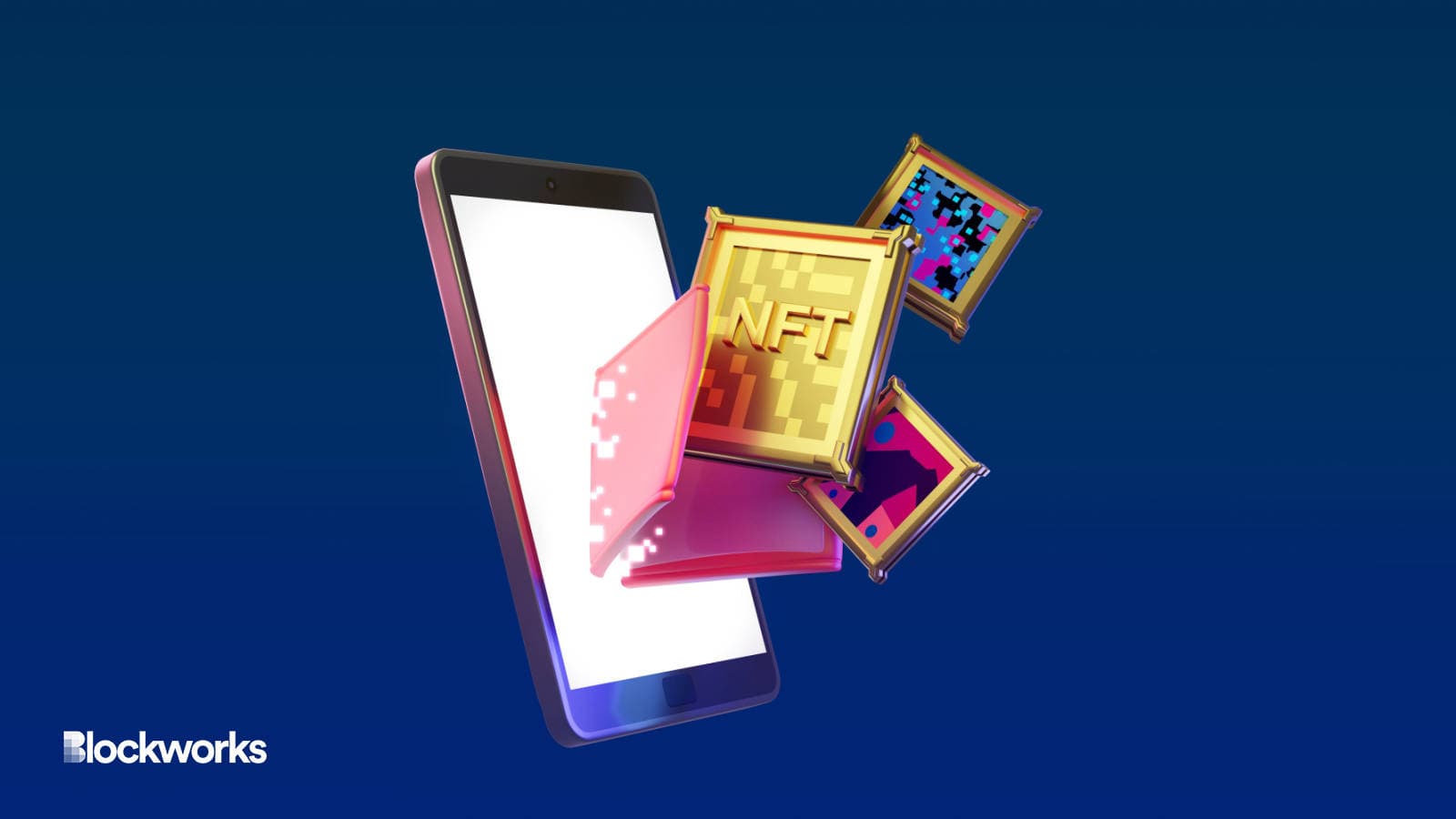Blur Users Open $95M Loans Backed By NFTs in 10 Days
Azuki NFTs are proving the most popular with borrowers and lenders on the new Blur peer-to-peer loans protocol, Blend

Alongkorn Sanguansook/Shutterstock, modified by Blockworks
Upstart NFT marketplace Blur’s lending protocol, Blend, is off to a flying start.
The platform, which allows users to borrow crypto against digital collectibles in perpetuity, has so far witnessed 51,656 ETH ($95 million) in loans since its inception 10 days ago, a Dune dashboard shows. More than 3,000 individual Blend loans have been opened to date.
Blend’s May 1 launch helped drive overall NFT loan volume to record highs, hitting $67 million over the week. Blend loans made up 75% of that figure, outstripping competing platforms such as NFTfi, Arcade, X2Y2 and BendDAO.
For scale, cumulative NFT loan volume in US dollars stands at more than $1 billion across 76,000 loans. There’s currently nearly $150 million in outstanding debt, per a separate dashboard.
Blend currently supports loans backed by four NFT collections: anime-inspired Azukis, street-stylish Miladys, deity-centric DeGods and wrapped versions of seminal CryptoPunks.
Read more: How Does NFT Lending Really Work? A Deep Dive
Azuki is so far the most popular collateral on Blend so far, representing nearly half of the 4,194 ETH ($7.7) in active loans.
Those lending out ether against Azuki-backed collateral are earning an average of 17% APY, data shows. Wrapped CryptoPunks, which have 952 ETH ($1.7 million) in active loans, stands much higher — averaging 39% annual percentage yield for lenders.
The process is as follows:
- Deposit: As a borrower, you lock your NFT into Blend as collateral
- Set terms: Specify the loan terms, including ETH amounts and interest rate
- Lender acceptance: Lender agrees to your terms and provides ETH
- ETH transfer: You receive the lender’s ETH; your NFT stays in Blend as collateral
- Accruing Interest: Over time, the lender earns interest on the loan
- Repayment/liquidation: Repay the loan to get the NFT back. Defaulting or failure to refinance via auction means the lender collects the NFT.
 Azuki collateral is good collateral on Blend (source)
Azuki collateral is good collateral on Blend (source)
Floor prices across all four supported NFT collections have varied over the past 30 days, with Azuki, DeGods and Miladys falling between 1% and 10%.
Miladys is the outlier, up around 69% going from 2.24 ETH ($4,140) to 3.8 ETH ($7,020), per OpenSea. Ether has fallen about 3% over the same period.
Generally, lenders would be willing to dish out ether in return for NFTs if they believe the tokens won’t massively decline in value — or the interest rate on offer is worth their while.
As it turns out, there seems to be many out there eager to take that bet.
Get the news in your inbox. Explore Blockworks newsletters:
- The Breakdown: Decoding crypto and the markets. Daily.
- 0xResearch: Alpha in your inbox. Think like an analyst.






